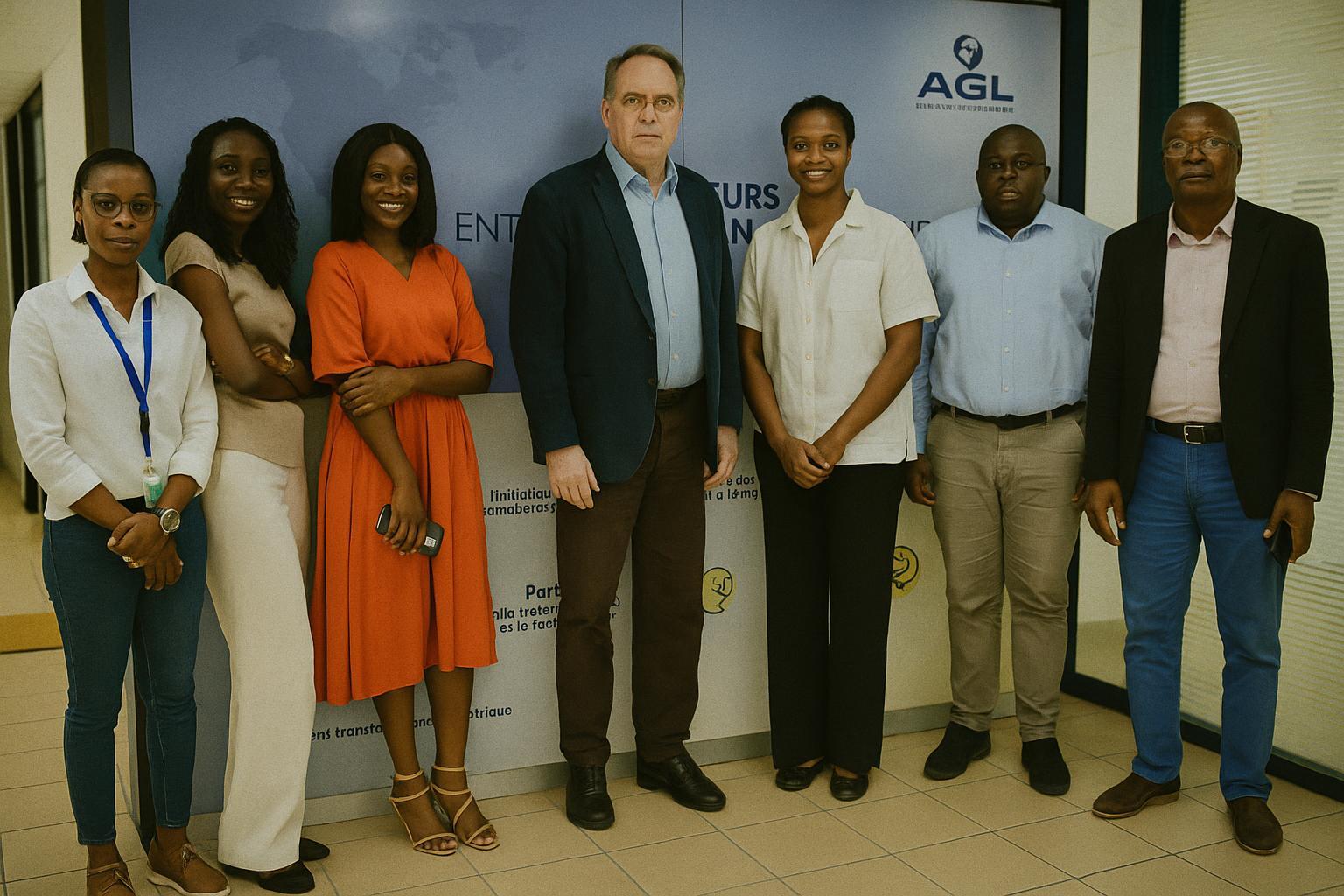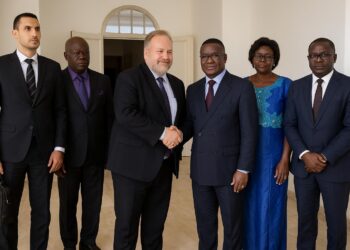A Strategic Convergence of Corporate Ambitions and National Vision
When Africa Global Logistics (AGL) announced on 30 June that six of its Congolese employees had secured admission to the Aspire Leaders Program, observers in Brazzaville discerned more than a routine training update. The decision neatly aligns with the Republic of Congo’s overarching objective of translating its demographic dynamism into a reservoir of managerial expertise, a priority echoed in recent statements from the Ministry of Planning. In a country where nearly two-thirds of the population is under thirty, investments in leadership competencies speak directly to national development strategies that emphasise youth inclusion and private-sector vitality.
Harvard’s Pedagogical Signature Meets Central African Realities
The Aspire Leaders Program, developed by a consortium of Harvard University faculty, is widely regarded as a gateway to best-practice management doctrines and cross-cultural negotiation skills. Delivered exclusively in English and drawing cohorts from over one hundred countries, the curriculum requires participants to interrogate case studies, engage in real-time simulations and craft capstone projects aimed at societal impact. According to program co-founder Professor Tarun Khanna, the initiative seeks to make “elite instruction porous to global talent”—an objective particularly salient for French-speaking professionals who must master English to navigate increasingly integrated value chains.
For Congolese participants, the immersion doubles as a linguistic upgrade and a cultural acclimatisation to the decision-making tempo of multinational environments. That synergy is crucial: Congo-Brazzaville’s logistics corridors, notably the Pointe-Noire deep-water port and the Corridor 13 rail line, are attracting diversified foreign investment, and operational teams must translate corporate directives into region-specific realities. As the World Bank has repeatedly stressed, the quality of local managers often determines whether infrastructure projects achieve projected multiplier effects.
Profiles in Aspiration: Six Emerging Congolese Professionals
Nicole Line Tchicaya, Dechrist Alléluia Koutima, Dorty-Carole Mouangui, Merveille Dorcas Ebale-Libembeli, Christ Bianiefe Loembet and Luc Hurydrice Mboulou-Ngombé form a cohort that spans finance, human resources and operations. Their average age is twenty-seven, yet each already oversees key workflows within AGL Congo’s national network. In an interview before departure, Tchicaya emphasised that “exposure to a plurality of cultures forces us to articulate objectives with greater precision”. Her observation resonates with AGL’s regional director Maïmouna Dramé Dolo, who framed the program as a catalyst for “leaders capable of reconciling corporate profitability with social utility”.
The selection process, involving psychometric testing and panel interviews, reportedly recorded a success rate below five percent, underscoring the rigor described by previous alumni from Kenya and India. That stringency, AGL executives contend, increases the likelihood that graduates will return with both confidence and humility—a duality often cited by leadership theorists as the hallmark of durable influence.
Building a Knowledge Economy around Logistics and Trade Corridors
Logistics represents more than the physical movement of goods; it has become a vector for knowledge transmission and technological spill-over. The Pointe-Noire port already functions as a regional hub handling close to 25 million tonnes annually, and the government has identified ancillary sectors such as cold-chain management and digital tracking systems as areas of strategic expansion. Equipping mid-level managers with global insights theoretically accelerates the localisation of such advanced services, thereby boosting competitiveness across Central Africa. Analysts at the United Nations Conference on Trade and Development have argued that the biggest hurdle for land-locked neighbours is not distance but managerial capacity; Congo-Brazzaville, though blessed with Atlantic access, faces similar challenges in harmonising port, rail and road operations.
By sponsoring its employees in Cambridge-based seminars, AGL effectively narrows the knowledge gap that often separates frontier markets from established shipping centres. The experience can also fortify the regulatory dialogue between corporate actors and Congolese authorities, fostering a common vocabulary on risk management, sustainability standards and digital customs procedures.
Soft Power Dividends for Brazzaville and Beyond
The diplomatic community has taken note of the initiative’s potential to augment Congo-Brazzaville’s soft power. Participation in a Harvard-backed program elevates the country’s profile in academic and philanthropic circles frequently involved in development finance. A senior official at the Economic Community of Central African States remarked privately that “showing you can produce talent that meets Ivy League benchmarks enhances negotiating leverage” in discussions on trade facilitation and regional integration.
Moreover, the symbolic value dovetails with President Denis Sassou Nguesso’s articulated priority of cultivating a knowledge-based economy. By showcasing young Congolese professionals on a world-class stage, the administration implicitly underscores its confidence in domestic human capital while avoiding any triumphal rhetoric. The tone remains measured but unmistakably optimistic, aligning with the diplomatic principle of projecting stability through competence.
Toward a Sustainable Talent Ecosystem
AGL insists that the Aspire experience is not an isolated reward but part of a structured mobility framework. Internal data indicate that more than forty percent of employees have changed functional roles in the past five years, a figure comparable to industry benchmarks in South Africa. Upon their return, the six participants will be integrated into a mentorship circuit designed to disseminate freshly acquired methodologies across departments, a practice consistent with contemporary theories on organisational learning.
Whether the ripple effects materialise at national scale will depend on replication beyond the logistics sector. Already, banking, telecommunications and agribusiness executives are reportedly examining partnerships with international universities to emulate the model. In that sense, the Aspire Leaders Program could constitute a pilot project in a broader tapestry of public-private initiatives aimed at transforming Congo-Brazzaville’s demographic dividend into a reservoir of skilled leadership.
For now, the six delegates carry a double mandate: excel in the rigorous academic environment of the Aspire Leaders Program and return as ambassadors of a managerial culture attuned to global best practices yet rooted in Congolese realities. Their journey encapsulates a forward-looking narrative—one in which individual ambition, corporate strategy and national priorities coalesce around the shared goal of sustainable development.










































